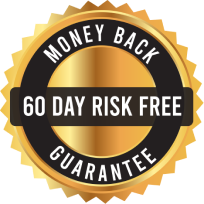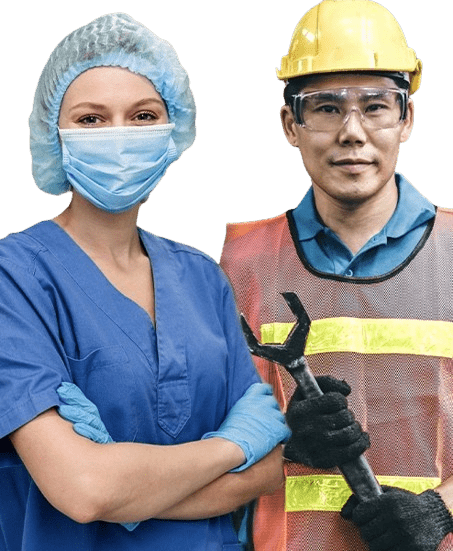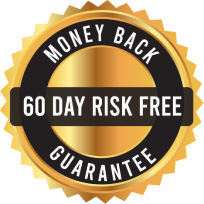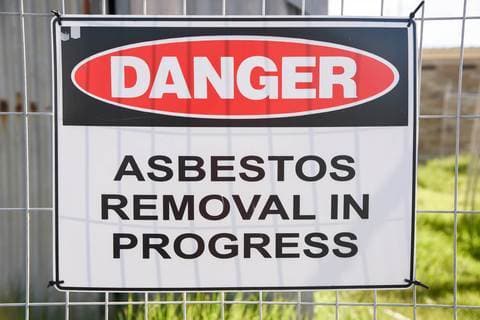Face-to-Face Asbestos Removal Courses Sydney

Face-to-Face Asbestos Removal Courses Sydney
Out of stock
Do you need to remove asbestos from a worksite? You likely need to complete asbestos removal training in Sydney first. At OHS.com.au, we offer face-to-face asbestos removal training to ensure that you comply with regulatory requirements.
Is Asbestos Removal Training in Sydney Mandatory?
In Sydney and the rest of New South Wales, an asbestos removal license is needed to remove friable asbestos and 10 square meters or more of bonded (non-friable) asbestos. Safe Work NSW manages the licensing of asbestos removal work and issues two licenses – Class A and Class B licenses.
The Class A licence allows PCBUs to remove any amount of asbestos or asbestos-containing material. This includes friable and non-friable asbestos. A licensed asbestos removalist is required for the removal of all amounts of friable asbestos.
The Class B licence permits an asbestos removal licence holder to remove any amount of non-friable asbestos. It does not cover the removal of any amount of friable asbestos.
Asbestos removal training is often completed by construction workers and others in the construction industry. Asbestos-containing materials are often present at construction sites involving older buildings.
Avoid Exposure to Asbestos with Asbestos Removal Courses in Sydney
We offer friable and non-friable asbestos removal training courses, along with the required training for asbestos supervisors and assessors. The following units of competency are available with face-to-face training in Sydney:
- CPCCDE3014 (Class B remove non-friable asbestos)
- CPCCDE3015 (Class A remove friable asbestos)
- Supervise asbestos removal
- Conduct assessment for asbestos removal
The first two courses are intended for workers involved in the asbestos removal process. Supervisors may complete the supervise asbestos removal course to explore air monitoring requirements and the steps involved in carrying out an asbestos removal control plan. The conduct assessment course is for licenced asbestos removal assessors.
Exposure to Asbestos Creates Serious Health Risks
Australia banned the use of asbestos in 2003. Buildings constructed or renovated before the ban are likely to contain asbestos products. The health effects can be fatal. Hundreds of Australians die every year from asbestos-related diseases, including asbestosis, mesothelioma, and lung cancer.
The health risks of asbestos exposure occur when you inhale small asbestos fibres. The fibres can scar your lungs, leading to an increased risk of asbestosis and other health complications.
Asbestos-containing material is often found in homes and buildings constructed or renovated before the 1990s. Asbestos is categorised as friable or non-friable, which refers to whether the material is easily crushed.
Friable materials tend to flake or crack easily. For example, when you disturb old pipe insulation, the material may release tiny fibres into the air. Non-friable material is less likely to distribute harmful fibres. It is not easily crushed, making it less of a health risk to remove.
Examples of non-friable (bonded) asbestos include vinyl floor tiles and untouched asbestos cement sheeting. Cement sheeting may become friable when handled or crushed by equipment. Other examples of friable asbestos include pipe insulation and spray insulation.
The health impact of asbestos can be reduced through awareness and training. Before engaging in asbestos removal work, make sure that you complete the required training.
Asbestos Removal Course Sydney Prerequisites and Content
You must present a statement of attainment for white card training, which was formerly known as construction induction training. You also need to complete the Class B asbestos removal course before you enrol in the Class A friable asbestos removal course.
The training courses cover recommended codes of practice for the removal of asbestos and asbestos-containing material. Participants learn how to follow an asbestos removal control plan and comply with other safe work practices, such as air monitoring and the use of personal protective equipment.
The main topics covered include:
- Asbestos hazards and health risks
- WHS regulatory requirements
- Preparing and isolating the site
- Asbestos removal processes
- Decontamination processes
- Asbestos disposal requirements
The courses explain safe work practices and Australian standards for dealing with asbestos removal. After successful completion of asbestos removal training, you can carry out asbestos removal work for an asbestos removal licence holder. You receive a statement of attainment, which acts as your asbestos removal certificate.
How Much Does Asbestos Removal Training Cost in Sydney?
The cost of asbestos removal courses varies. Class B courses often cost $500 or more and require a full day of training. Class A courses can cost $1,000 or more per seat and include two days of training. Our face-to-face training ensures that you receive expert instruction from experienced instructors at the best prices.
We offer a wide range of safety training solutions, including online and face-to-face courses. However, you must complete face-to-face training for asbestos removal work. Contact us to sign up for asbestos removal training today.
SKU:
Course Highlights:
- In-person Training
- Expert-Led
- Quality Focused
- Fast Certification
- Tax Deductable
- Trusted RTO Provider
- Statement of Attainment
- Nationally Recognised
Couldn't load pickup availability

"Very detailed information, with the ability to shuffle and skip past parts that I knew. I actually enjoyed doing it. I was refreshed after completing the course. All in all, a fantastic refresher course."
Luke W."Straight forward and easy to understand. Thanks, OHS this is my second Refresher course."
Anonymous"Quick & relatively easy, done from the comfort of home."
David B"Really great courses on OHS website, would use this site again."
RhysADDITIONAL EXTRA BONUSES with OHS.com.au
Claim up to $1271.95 worth of Extra Bonuses
with every purchase
- Your personal copy of Safety Legends E-Book (value $39.95)
- $100 off your first case from Naked Wines (value $100)
- Upto 350,000 Bonus AMEX Frequent Flyer points* (value $1000)
- Complimentary Access to two online courses** (value $132)
$1271.95 EXTRA VALUE - JUST FOR YOU INSIDE!
* New customers when you successfully sign up for a new personal / business credit card ** Indigenous Cultural Awareness / Impacts of Climate Change coursesDescription
Do you need to remove asbestos from a worksite? You likely need to complete asbestos removal training in Sydney first. At OHS.com.au, we offer face-to-face asbestos removal training to ensure that you comply with regulatory requirements.
Is Asbestos Removal Training in Sydney Mandatory?
In Sydney and the rest of New South Wales, an asbestos removal license is needed to remove friable asbestos and 10 square meters or more of bonded (non-friable) asbestos. Safe Work NSW manages the licensing of asbestos removal work and issues two licenses – Class A and Class B licenses.
The Class A licence allows PCBUs to remove any amount of asbestos or asbestos-containing material. This includes friable and non-friable asbestos. A licensed asbestos removalist is required for the removal of all amounts of friable asbestos.
The Class B licence permits an asbestos removal licence holder to remove any amount of non-friable asbestos. It does not cover the removal of any amount of friable asbestos.
Asbestos removal training is often completed by construction workers and others in the construction industry. Asbestos-containing materials are often present at construction sites involving older buildings.
Avoid Exposure to Asbestos with Asbestos Removal Courses in Sydney
We offer friable and non-friable asbestos removal training courses, along with the required training for asbestos supervisors and assessors. The following units of competency are available with face-to-face training in Sydney:
- CPCCDE3014 (Class B remove non-friable asbestos)
- CPCCDE3015 (Class A remove friable asbestos)
- Supervise asbestos removal
- Conduct assessment for asbestos removal
The first two courses are intended for workers involved in the asbestos removal process. Supervisors may complete the supervise asbestos removal course to explore air monitoring requirements and the steps involved in carrying out an asbestos removal control plan. The conduct assessment course is for licenced asbestos removal assessors.
Exposure to Asbestos Creates Serious Health Risks
Australia banned the use of asbestos in 2003. Buildings constructed or renovated before the ban are likely to contain asbestos products. The health effects can be fatal. Hundreds of Australians die every year from asbestos-related diseases, including asbestosis, mesothelioma, and lung cancer.
The health risks of asbestos exposure occur when you inhale small asbestos fibres. The fibres can scar your lungs, leading to an increased risk of asbestosis and other health complications.
Asbestos-containing material is often found in homes and buildings constructed or renovated before the 1990s. Asbestos is categorised as friable or non-friable, which refers to whether the material is easily crushed.
Friable materials tend to flake or crack easily. For example, when you disturb old pipe insulation, the material may release tiny fibres into the air. Non-friable material is less likely to distribute harmful fibres. It is not easily crushed, making it less of a health risk to remove.
Examples of non-friable (bonded) asbestos include vinyl floor tiles and untouched asbestos cement sheeting. Cement sheeting may become friable when handled or crushed by equipment. Other examples of friable asbestos include pipe insulation and spray insulation.
The health impact of asbestos can be reduced through awareness and training. Before engaging in asbestos removal work, make sure that you complete the required training.
Asbestos Removal Course Sydney Prerequisites and Content
You must present a statement of attainment for white card training, which was formerly known as construction induction training. You also need to complete the Class B asbestos removal course before you enrol in the Class A friable asbestos removal course.
The training courses cover recommended codes of practice for the removal of asbestos and asbestos-containing material. Participants learn how to follow an asbestos removal control plan and comply with other safe work practices, such as air monitoring and the use of personal protective equipment.
The main topics covered include:
- Asbestos hazards and health risks
- WHS regulatory requirements
- Preparing and isolating the site
- Asbestos removal processes
- Decontamination processes
- Asbestos disposal requirements
The courses explain safe work practices and Australian standards for dealing with asbestos removal. After successful completion of asbestos removal training, you can carry out asbestos removal work for an asbestos removal licence holder. You receive a statement of attainment, which acts as your asbestos removal certificate.
How Much Does Asbestos Removal Training Cost in Sydney?
The cost of asbestos removal courses varies. Class B courses often cost $500 or more and require a full day of training. Class A courses can cost $1,000 or more per seat and include two days of training. Our face-to-face training ensures that you receive expert instruction from experienced instructors at the best prices.
We offer a wide range of safety training solutions, including online and face-to-face courses. However, you must complete face-to-face training for asbestos removal work. Contact us to sign up for asbestos removal training today.
- Money Back Guarantee
- Save Time & Money
- Tax Deductible
- 1000's Trained Each Month
- Quality-Focused
- Peer Reviewed Courses
- Trusted Industry Partner
- Fast Certification
- 60 Day Guarantee
- *See refund policy


Got multiple people needing to do a course? We will get back to you within a day!
Student Reviews

Couldn't load pickup availability

Contact Us!
Contact form
ADDITIONAL EXTRA BONUSES with OHS.com.au
Claim up to $1271.95 worth of Extra Bonuses
with every purchase
- Your personal copy of Safety Legends E-Book (value $39.95)
- $100 off your first case from Naked Wines (value $100)
- Upto 350,000 Bonus AMEX Frequent Flyer points* (value $1000)
- Complimentary Access to two online courses** (value $132)
$1271.95 EXTRA VALUE - JUST FOR YOU INSIDE!
* New customers when you successfully sign up for a new personal / business credit card ** Indigenous Cultural Awareness / Impacts of Climate Change coursesDescription
Do you need to remove asbestos from a worksite? You likely need to complete asbestos removal training in Sydney first. At OHS.com.au, we offer face-to-face asbestos removal training to ensure that you comply with regulatory requirements.
Is Asbestos Removal Training in Sydney Mandatory?
In Sydney and the rest of New South Wales, an asbestos removal license is needed to remove friable asbestos and 10 square meters or more of bonded (non-friable) asbestos. Safe Work NSW manages the licensing of asbestos removal work and issues two licenses – Class A and Class B licenses.
The Class A licence allows PCBUs to remove any amount of asbestos or asbestos-containing material. This includes friable and non-friable asbestos. A licensed asbestos removalist is required for the removal of all amounts of friable asbestos.
The Class B licence permits an asbestos removal licence holder to remove any amount of non-friable asbestos. It does not cover the removal of any amount of friable asbestos.
Asbestos removal training is often completed by construction workers and others in the construction industry. Asbestos-containing materials are often present at construction sites involving older buildings.
Avoid Exposure to Asbestos with Asbestos Removal Courses in Sydney
We offer friable and non-friable asbestos removal training courses, along with the required training for asbestos supervisors and assessors. The following units of competency are available with face-to-face training in Sydney:
- CPCCDE3014 (Class B remove non-friable asbestos)
- CPCCDE3015 (Class A remove friable asbestos)
- Supervise asbestos removal
- Conduct assessment for asbestos removal
The first two courses are intended for workers involved in the asbestos removal process. Supervisors may complete the supervise asbestos removal course to explore air monitoring requirements and the steps involved in carrying out an asbestos removal control plan. The conduct assessment course is for licenced asbestos removal assessors.
Exposure to Asbestos Creates Serious Health Risks
Australia banned the use of asbestos in 2003. Buildings constructed or renovated before the ban are likely to contain asbestos products. The health effects can be fatal. Hundreds of Australians die every year from asbestos-related diseases, including asbestosis, mesothelioma, and lung cancer.
The health risks of asbestos exposure occur when you inhale small asbestos fibres. The fibres can scar your lungs, leading to an increased risk of asbestosis and other health complications.
Asbestos-containing material is often found in homes and buildings constructed or renovated before the 1990s. Asbestos is categorised as friable or non-friable, which refers to whether the material is easily crushed.
Friable materials tend to flake or crack easily. For example, when you disturb old pipe insulation, the material may release tiny fibres into the air. Non-friable material is less likely to distribute harmful fibres. It is not easily crushed, making it less of a health risk to remove.
Examples of non-friable (bonded) asbestos include vinyl floor tiles and untouched asbestos cement sheeting. Cement sheeting may become friable when handled or crushed by equipment. Other examples of friable asbestos include pipe insulation and spray insulation.
The health impact of asbestos can be reduced through awareness and training. Before engaging in asbestos removal work, make sure that you complete the required training.
Asbestos Removal Course Sydney Prerequisites and Content
You must present a statement of attainment for white card training, which was formerly known as construction induction training. You also need to complete the Class B asbestos removal course before you enrol in the Class A friable asbestos removal course.
The training courses cover recommended codes of practice for the removal of asbestos and asbestos-containing material. Participants learn how to follow an asbestos removal control plan and comply with other safe work practices, such as air monitoring and the use of personal protective equipment.
The main topics covered include:
- Asbestos hazards and health risks
- WHS regulatory requirements
- Preparing and isolating the site
- Asbestos removal processes
- Decontamination processes
- Asbestos disposal requirements
The courses explain safe work practices and Australian standards for dealing with asbestos removal. After successful completion of asbestos removal training, you can carry out asbestos removal work for an asbestos removal licence holder. You receive a statement of attainment, which acts as your asbestos removal certificate.
How Much Does Asbestos Removal Training Cost in Sydney?
The cost of asbestos removal courses varies. Class B courses often cost $500 or more and require a full day of training. Class A courses can cost $1,000 or more per seat and include two days of training. Our face-to-face training ensures that you receive expert instruction from experienced instructors at the best prices.
We offer a wide range of safety training solutions, including online and face-to-face courses. However, you must complete face-to-face training for asbestos removal work. Contact us to sign up for asbestos removal training today.
- Money Back Guarantee
- Save Time & Money
- Tax Deductible
- 1000's Trained Each Month
- Quality-Focused
- Peer Reviewed Courses
- Trusted Industry Partner
- Fast Certification
- 60 Day Guarantee
- *See refund policy
Student Reviews

Course Highlights:
- In-person Training
- Expert-Led
- Quality Focused
- Fast Certification
- Tax Deductable
- Trusted RTO Provider
- Statement of Attainment
- Nationally Recognised
Couldn't load pickup availability

"Very detailed information, with the ability to shuffle and skip past parts that I knew. I actually enjoyed doing it. I was refreshed after completing the course. All in all, a fantastic refresher course."
Luke W."Straight forward and easy to understand. Thanks, OHS this is my second Refresher course."
Anonymous"Quick & relatively easy, done from the comfort of home."
David B"Really great courses on OHS website, would use this site again."
Rhys


Are you from a large organisation? Contact us for a group quote!
 Checkout securely with
Checkout securely with
Flexibility and accessibility - these are the cornerstones of OHS's approach to health and safety training, driving our mission since 1999. Our online offerings keep you in the loop with the latest practices and legislation, all while fitting effortlessly around your busy routine.
Choose OHS for top-tier, flexible training options such as NDIS Training, Safety Training, Staff Training and VOCs/High Risk Refreshers, crafted to be budget-friendly and comprehensive. Say goodbye to searching for 'Certo First Aid Training', 'Can You Do Confined Space Training Online' or 'First Aid Training For Carers'; we've got all your training requirements covered.
Whether you choose to purchase individual courses or opt for our comprehensive yearly subscription, we've made professional development flexible and easy, so you won't have to keep looking up terms like 'ohs manager', 'ndis medication training' or 'induction training'. Buy a course or make an enquiry today at OHS; we offer flexible subscription plans and individual courses that make professional development straightforward.
 1300 307 445
1300 307 445

